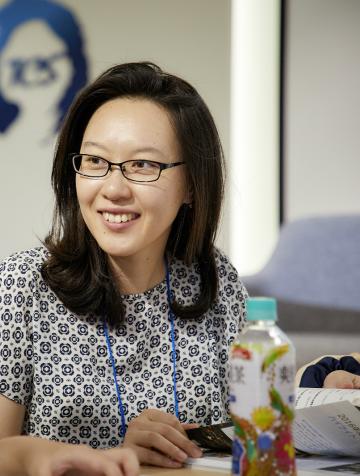Jing Sun is a research fellow at the Death and Life Studies and Practical Ethics (Research Center) at the University of Tokyo. She holds master’s degrees in international politics and public policy and received her Ph.D. in history from University of Pennsylvania. Her research examines the production, spread, and broad impact of scientific knowledge of food in Japan as a member of the modern world featuring cross-border movement of ideas, commodities, and people. She has published studies on topics of nutrition science and food economy in Japan. She is currently working on the first book project to revise and publish her Ph.D. dissertation titled “Eating by Numbers: Nutrition, Health, and the Political Economy of Food in Modern Japan, 1882-1952.”
Exam Committee: Frederick R. Dickinson (advisor), Siyen Fei, Walter A. McDougall.
Dissertation Committee: Frederick R. Dickinson (advisor), Eiichiro Azuma, Sebastián Gil-Riaño.
Teaching Fields: Modern Japanese history, Late imperial and modern Chinese history, US international history, World history
Dissertation: Eating by Numbers: Nutrition, Health and the Political Economy of Food in Modern Japan 1880-1952.
This dissertation explores the development of quantitative dietary standards and their socioeconomic consequences in modern Japan. By incorporating insights from the history of knowledge, I examine diverse and multilingual sources, both qualitative and quantitative, to elucidate how knowledge of dietary standards for the Japanese population were produced, circulated, and applied to people’s lives from the 1880s to the 1950s. This study reveals a close linkage between nutrition science and the food economy at both familial and national levels, which Japan scholars have often studied separately. I argue that the establishment of dietary standards paved the way for both micro- and macro-level applications of quantitative logic to the rationalization of individual nutrition and food economy, thereby reshaping food and nutrition policy making in modern Japan. The government compared agricultural production with the caloric needs of the entire population. During wartime and the occupation period, governing authorities and public health professionals developed nutritional and food policies to nourish a hungry population. People were encouraged to adhere to numerical standards of daily nutrient intake to optimize nutrition. The ideas and practices of calculated eating by standards, strenuously promoted by generations of nutrition professionals and embraced by many women responsible for household nutrition, transformed the nutritional awareness and dietary habits of the Japanese populace.
Ph.D. History, University of Pennsylvania (2024)
M.A. Asia-Pacific Studies, Peking University, China (2016)
M.P.P. Campus Asia Program, The University of Tokyo, Japan (2016)
B.A. International Politics, Peking University, China (2013)
B.A. International Liberal Studies, Waseda University, Japan (2013)
Nutrition, History of Medicine, Food, Warfare, Empire, Global Asia
Adjunct professor: HIST3001 Modernizing Ancient Japan (2023, 2024 CIEE Japan Studies Summer Program)
TA: Modern American Culture (2018Fall, UPenn); History of Modern China (2019Spring, UPenn).
Grader: Media History (2011-2, Waseda University, Japan); International Law (2014Spring, Peking University, China); American Diplomatic History since 1776 (2017Fall, UPenn); Comparative Capitalist Systems (2018Spring, UPenn).

